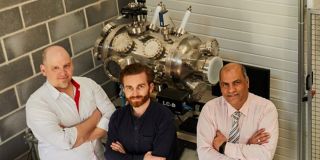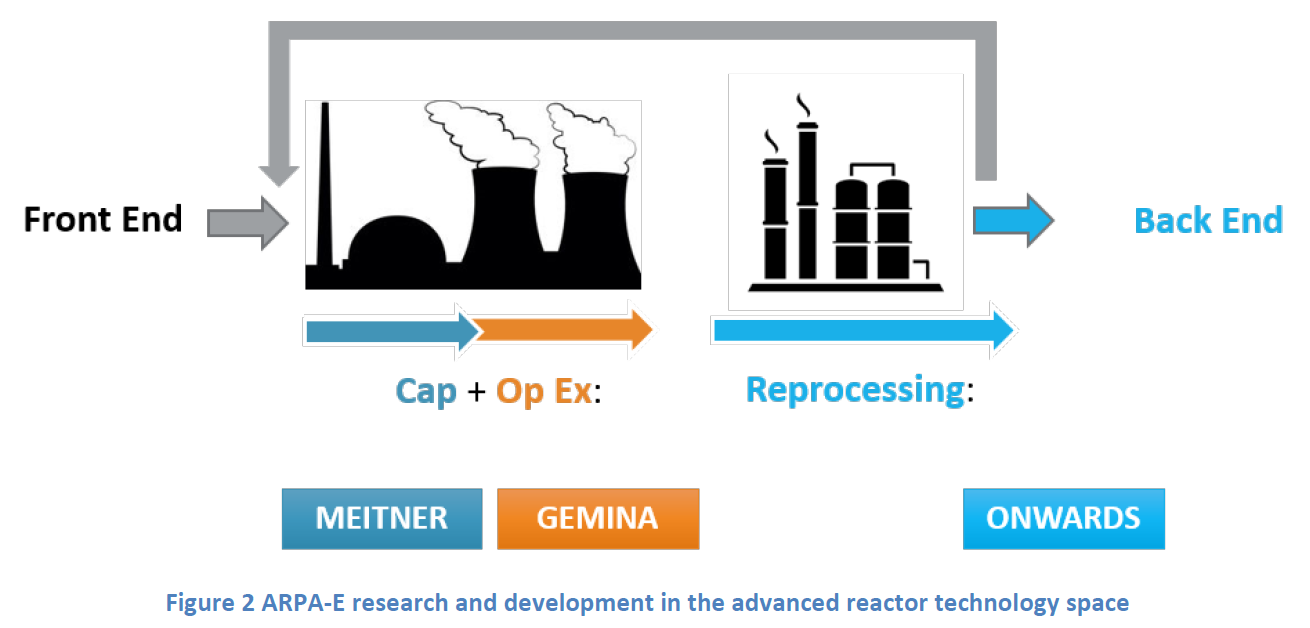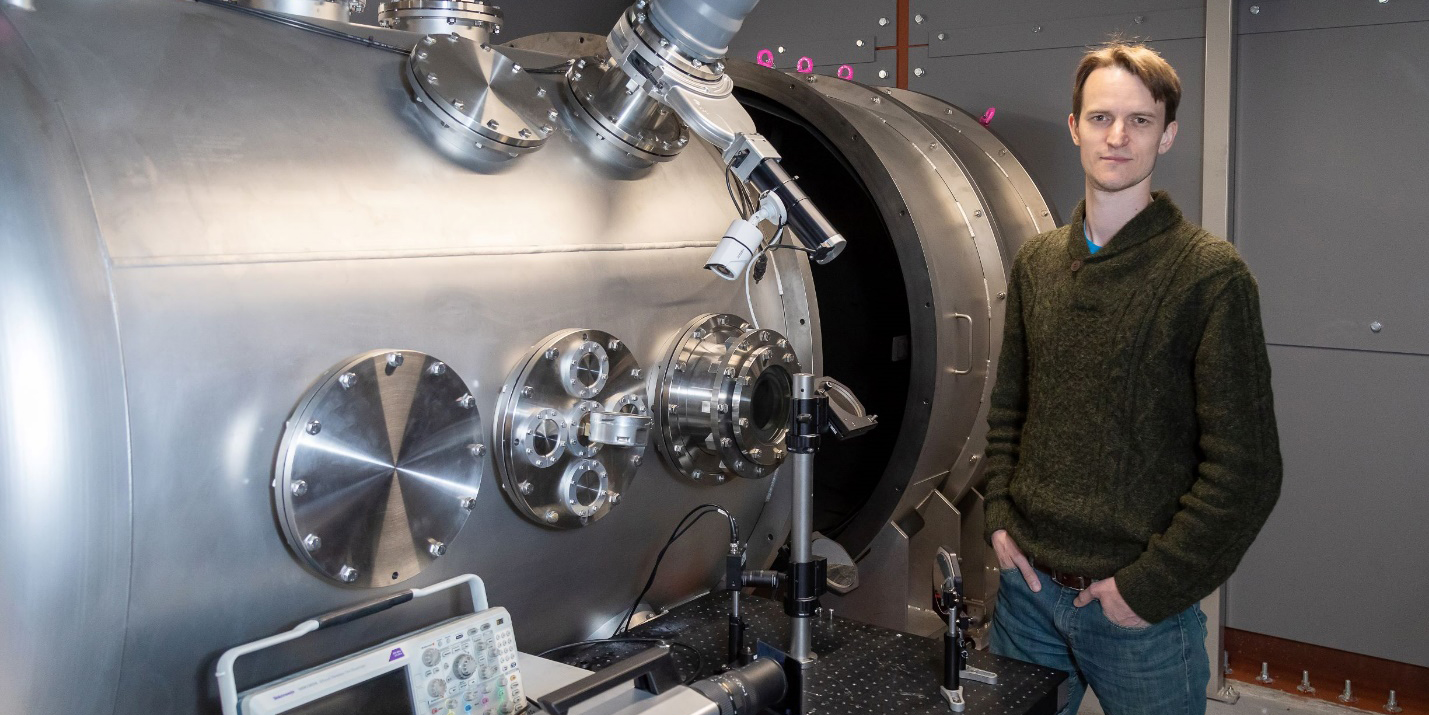Plastic waste on a Galapagos beach. Sunlight, wind, and waves break down large plastic debris into smaller and smaller pieces to become microplastics. (Photo: F. Oberhaensli/IAEA)
The International Atomic Energy Agency has created a new program, NUclear TEChnology for Controlling Plastic Pollution (NUTEC Plastics), to address the global environmental impact of plastic pollution in oceans. It uses nuclear technology to monitor pollution and also to decrease the volume of plastic waste by using irradiation to complement traditional plastic recycling methods.
Artist’s rendering of the MMR project. (Image: USNC)
Global First Power’s (GFP) Micro Modular Reactor (MMR) project has moved to the formal license review phase with the Canadian Nuclear Safety Commission (CNSC), becoming the first small modular reactor to do so.
A rendering of the SHINE medical isotope production facility planned for construction in Veendam, the Netherlands. (Image: Shine)
SHINE Medical Technologies plans to locate its European medical isotope production facility in the Netherlands after a yearlong search and a review of more than 50 proposals from sites across Europe. The company announced on May 20 that construction at the site should begin in 2023 with commercial production starting in late 2025.
May 21, 2021, 2:41PMNuclear NewsCharles Forsberg and Eric Ingersoll TerraPower and GE Hitachi Nuclear Energy jointly developed the sodium-cooled Natrium reactor with the turbine hall, nitrate heat storage tanks, and cooling towers separated from the reactor at the back of the site.
The viability of nuclear power ultimately depends on economics. Safety is a requirement, but it does not determine whether a reactor will be deployed. The most economical reactor maximizes revenue while minimizing costs. The lowest-cost reactor is not necessarily the most economical reactor. Different markets impose different requirements on reactors. If the capital cost of Reactor A is 50 percent more than Reactor B but has characteristics that double the revenue, the most economical reactor is Reactor A.
The most important factor is an efficient supply chain, including on-site construction practices. This is the basis for the low capital cost of light water reactors from China and South Korea. The design of the reactor can significantly affect capital cost through its impact on the supply chain. The question is, how can advanced reactors boost revenue and reduce costs?
This figure, included in the ONWARDS funding opportunity announcement, shows how ARPA-E R&D programs address different stages of advanced reactor development. (Figure: ARPA-E)
The Department of Energy has announced up to $40 million in funding for a new Advanced Research Projects Agency-Energy (ARPA-E) program to conduct research and development into technologies for reprocessing and ultimately disposing of used nuclear fuel. The program, “Optimizing Nuclear Waste and Advanced Reactor Disposal Systems” (ONWARDS), announced on May 19, targets both open (once-through) and closed (reprocessing) fuel cycles to reduce the amount of waste produced from advanced reactors tenfold when compared to light water reactors.
Video still showing samples of red trinitite. (Source: University of Florence)
The world’s first atomic bomb test—code-named Trinity and conducted in New Mexico on July 16, 1945—had an unintended outcome that was only recently discovered.
SHINE executives, construction managers, and partners commemorate a construction milestone of the medical isotope production facility in March. (Photo: SHINE)
The Nuclear Regulatory Commission has approved a request by SHINE Medical Technologies for an exemption from regulations on how commercial grade equipment is defined, allowing the company to more easily procure components for the medical isotope production facility it is building in Janesville, Wis.
Source: GlobalData Power Intelligence Center
Nuclear power will remain the dominant source of electricity generation in Bulgaria until 2030, despite the national government’s plans to add a substantial amount of renewable capacity this decade, says GlobalData, a U.K.-based data and analytics company. (According to a national strategy blueprint published on the Bulgarian parliament’s website last year, the country is targeting an additional 2,645 MW of installed capacity from renewable sources by the end of 2030.)
The Crab nebula, an iconic Milky Way supernova remnant, as viewed by the Herschel Space Observatory and the Hubble Space Telescope. (Image: NASA, ESA, and Allison Loll/Jeff Hester, Arizona State University)
Traces of freshly made plutonium and radioactive iron recovered from the bottom of the Pacific Ocean are contributing to an understanding of how heavier elements are created from exploding stars and other cosmic events, according to a National Public Radio report.
First Light Fusion CEO Nick Hawker stands near the target end of the 22-meter-long gas gun. (Photo: First Light)
Inside a new steel-clad facility nicknamed “The Citadel,” First Light Fusion has installed a 22-meter two-stage gas gun—the third-largest such component in Europe.
“Big Carl,” the world’s largest land-based crane, lifts the second of three prefabricated steel rings that will form the reinforced cylinder around the nuclear reactor at Hinkley Point C from its bunker to a lay-down area in late April. (Photo: EDF)
EDF has signed a new membership agreement with the United Kingdom’s Nuclear Advanced Manufacturing Research Centre (AMRC) to drive innovation in low-carbon power generation and support U.K. manufacturers, the University of Sheffield–based center announced recently.
New York’s Indian Point-3 was scheduled to close in April 2021.
At present, more than 20 commercial nuclear power plants in the United States have entered the decommissioning process, and many indicators point to a coming wave of additional plant closures. Indeed, with increasing numbers of plants terminating operations due to unfavorable market conditions, some voices have deemed this the “age of decommissioning.”
Regardless of whether a plant shuts its doors earlier than anticipated or seeks a life extension through relicensing, all plants eventually close. When they do, the closure sets off a wave of economic impacts ranging from minor disruptions to severe and long-lasting harm.








 A highly anticipated report released yesterday by the International Energy Agency on how to transition the world to a net-zero energy system by 2050 calls for “nothing less than a complete transformation of how we produce, transport, and consume energy.” At the same time, the report,
A highly anticipated report released yesterday by the International Energy Agency on how to transition the world to a net-zero energy system by 2050 calls for “nothing less than a complete transformation of how we produce, transport, and consume energy.” At the same time, the report, 
 Among the 12 energy-mix scenarios analyzed in
Among the 12 energy-mix scenarios analyzed in 









